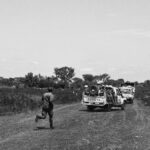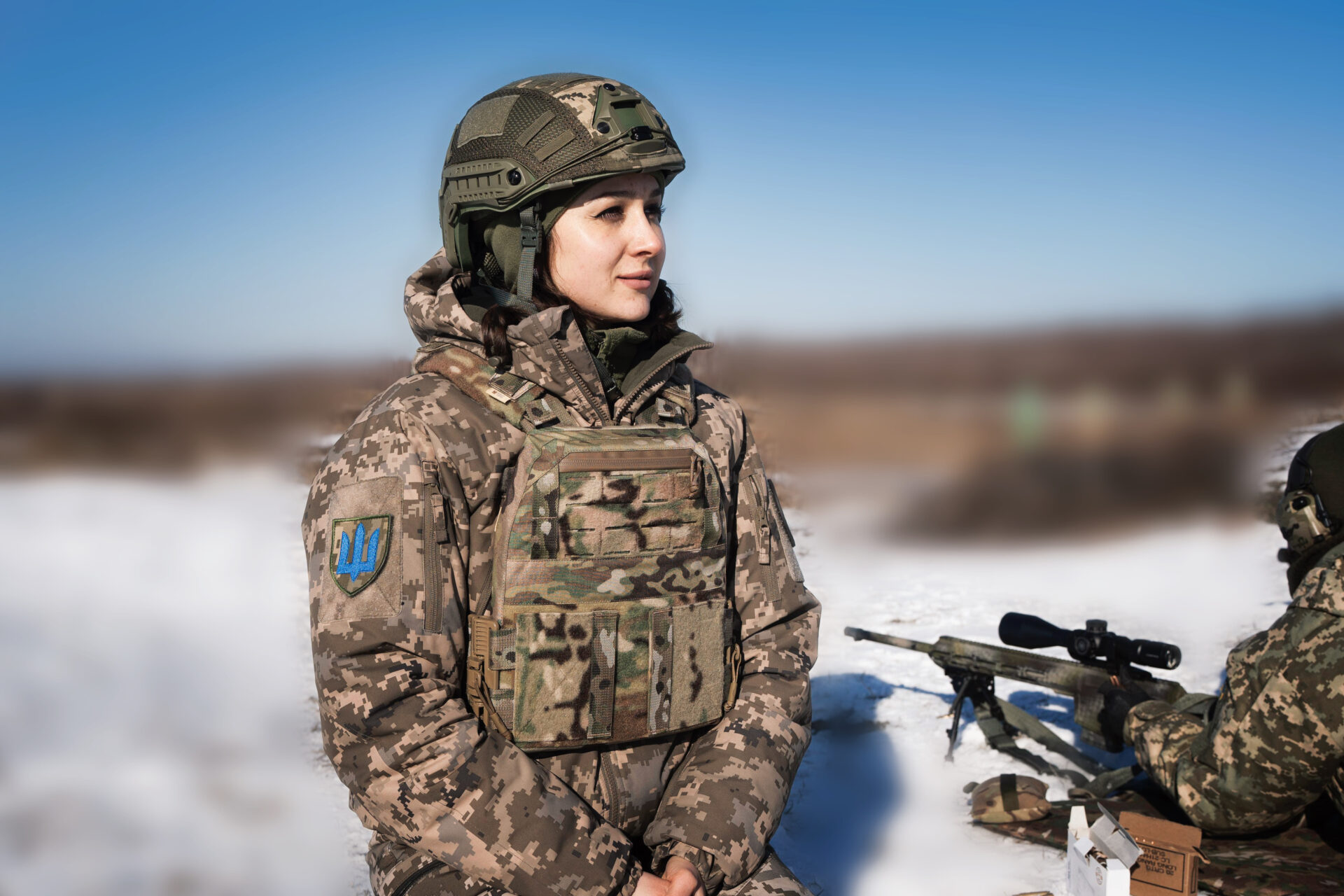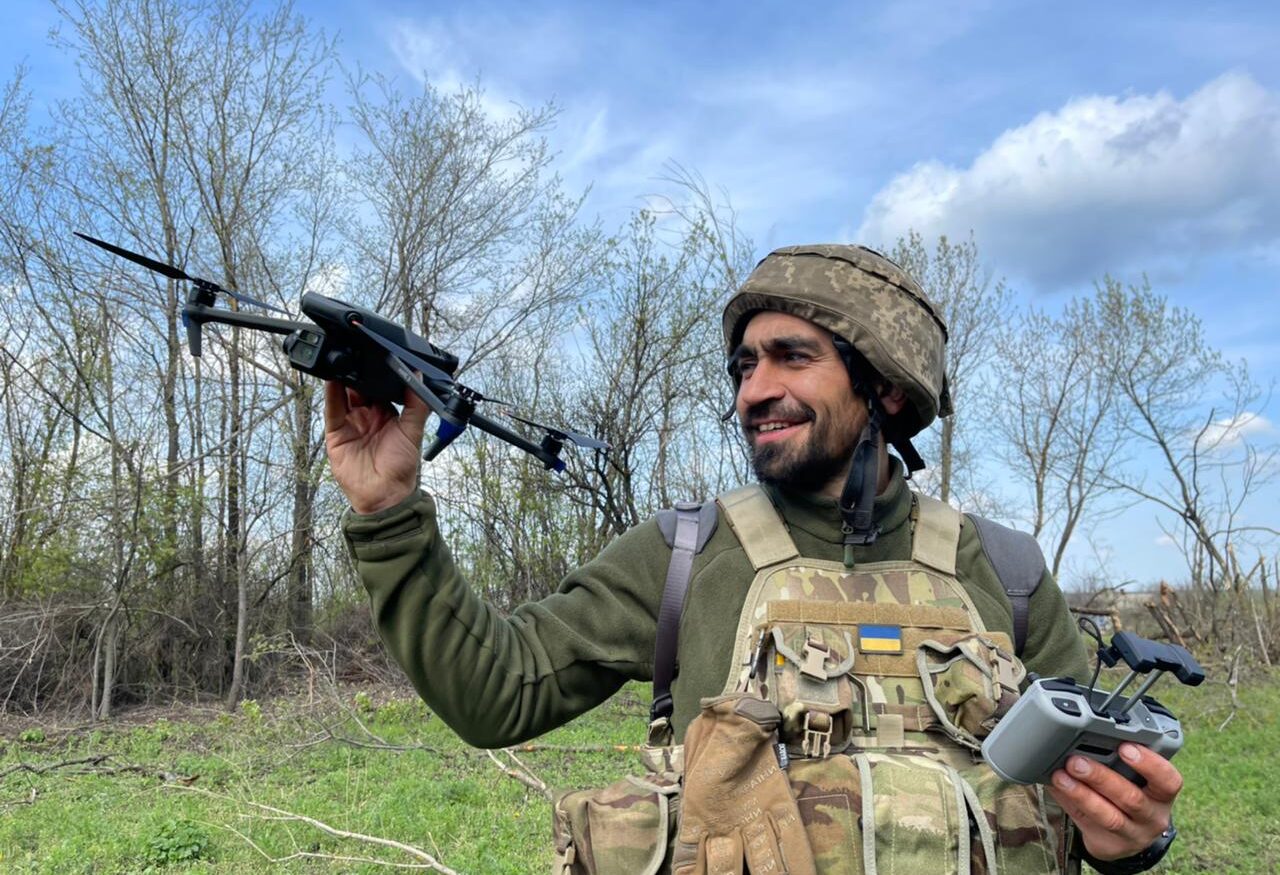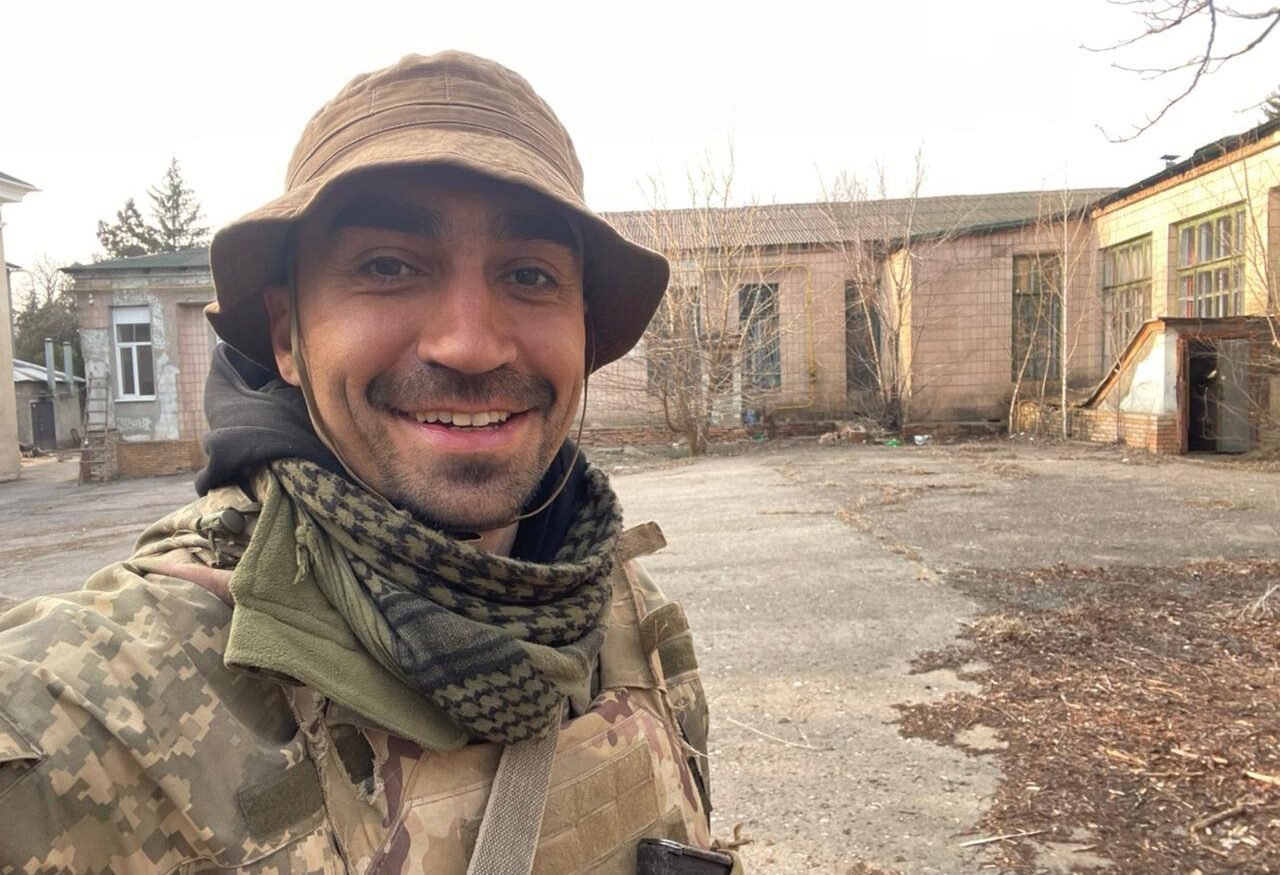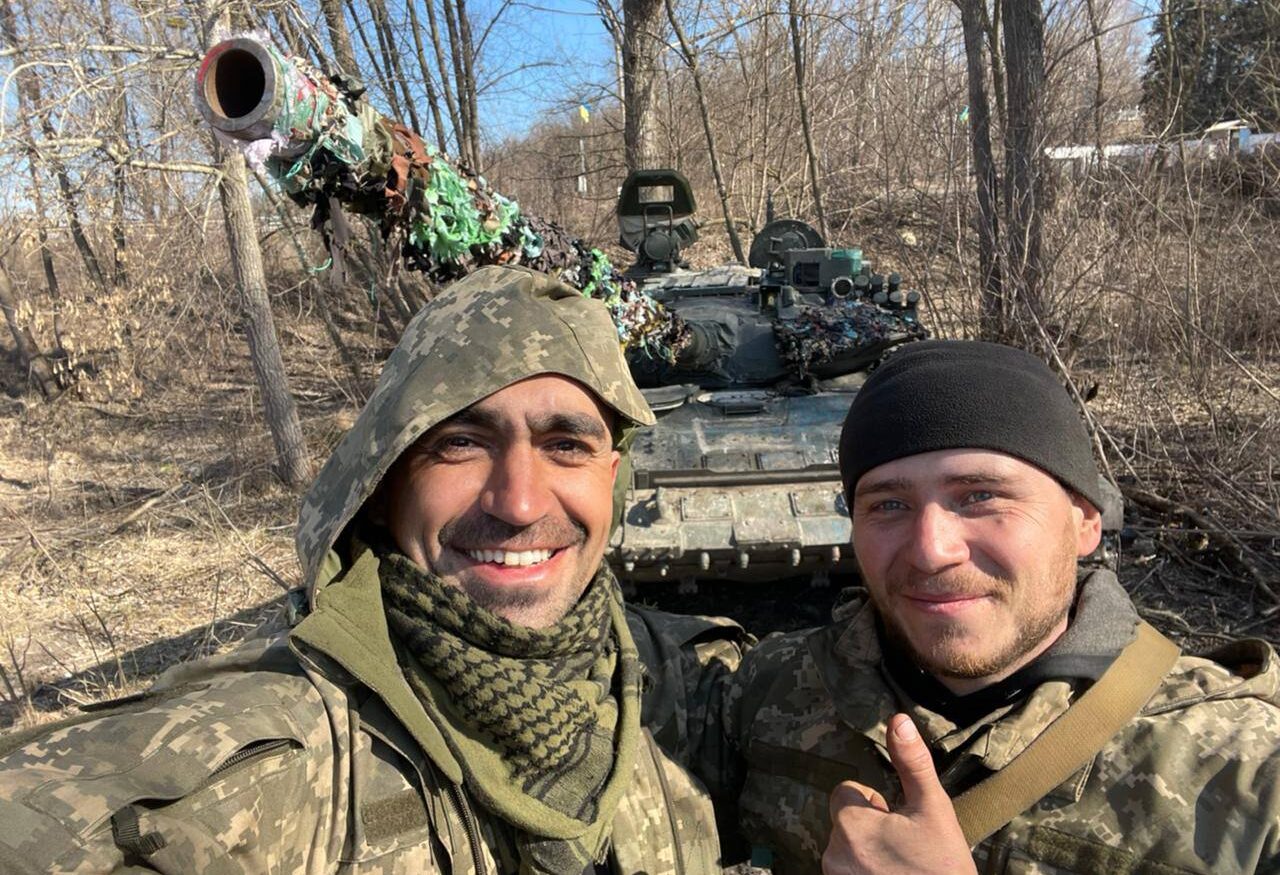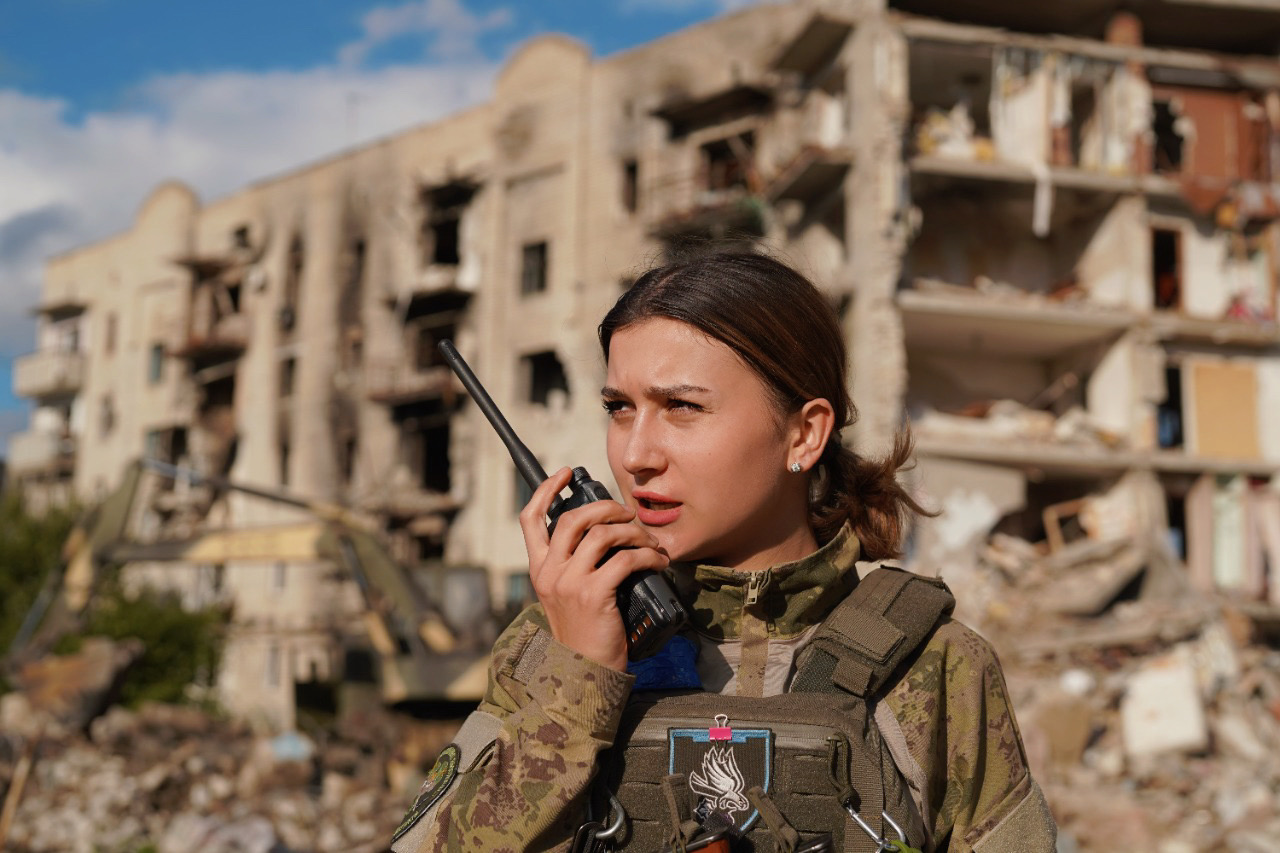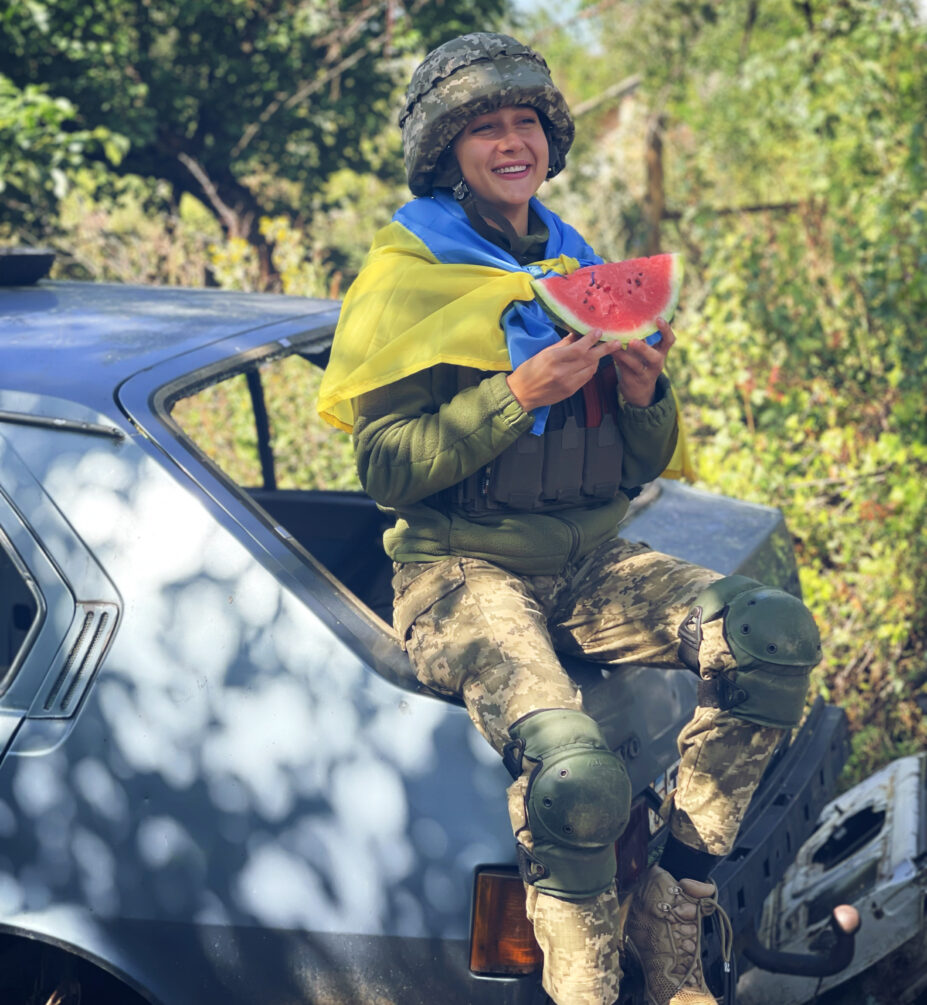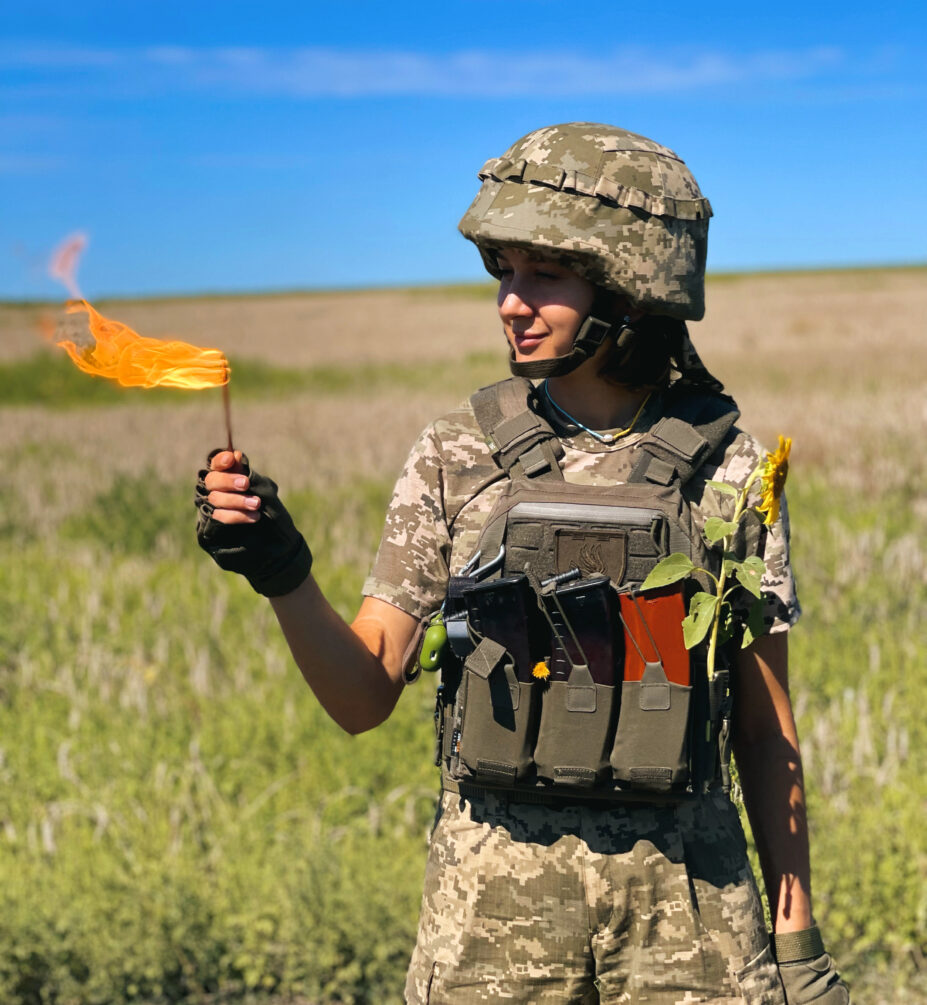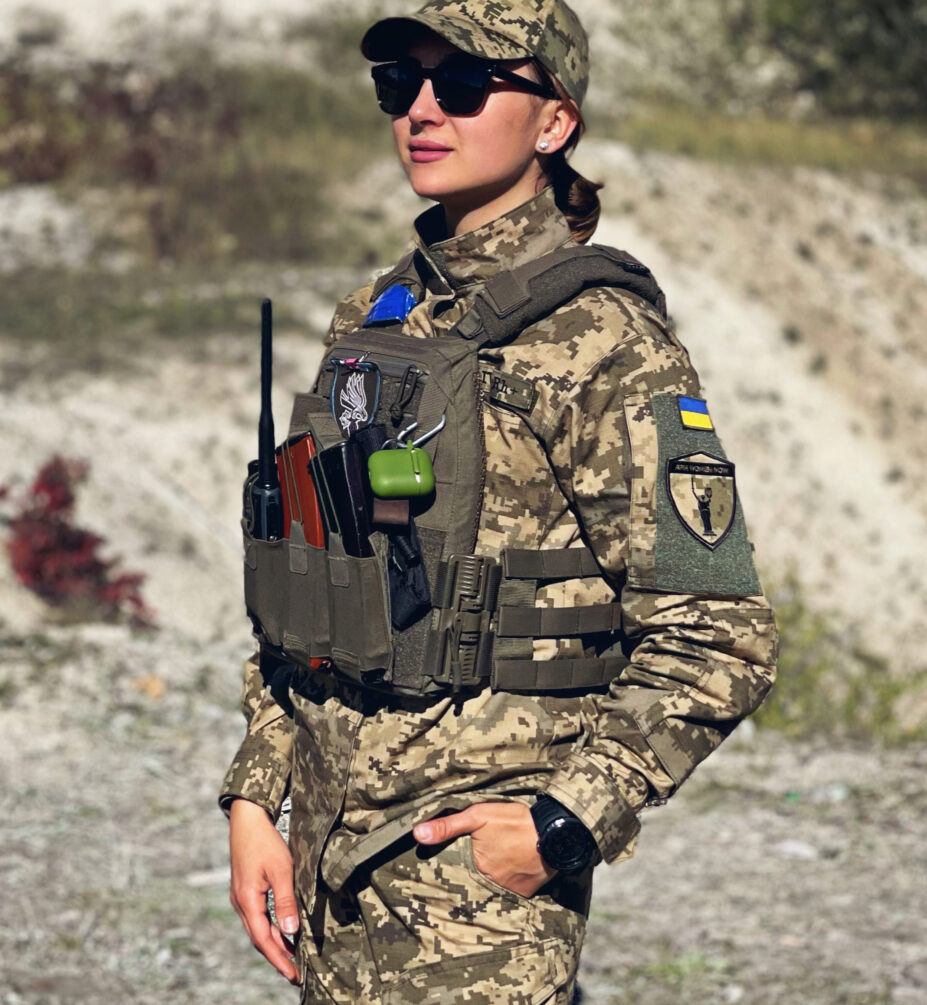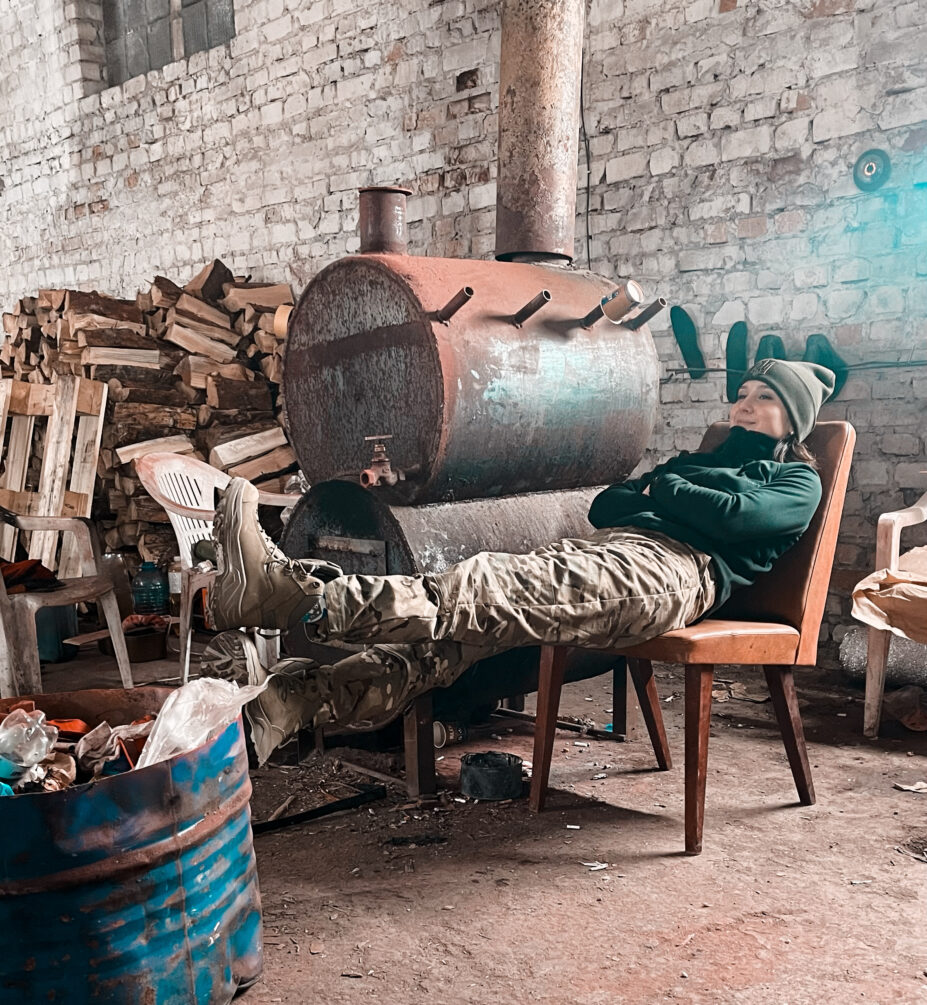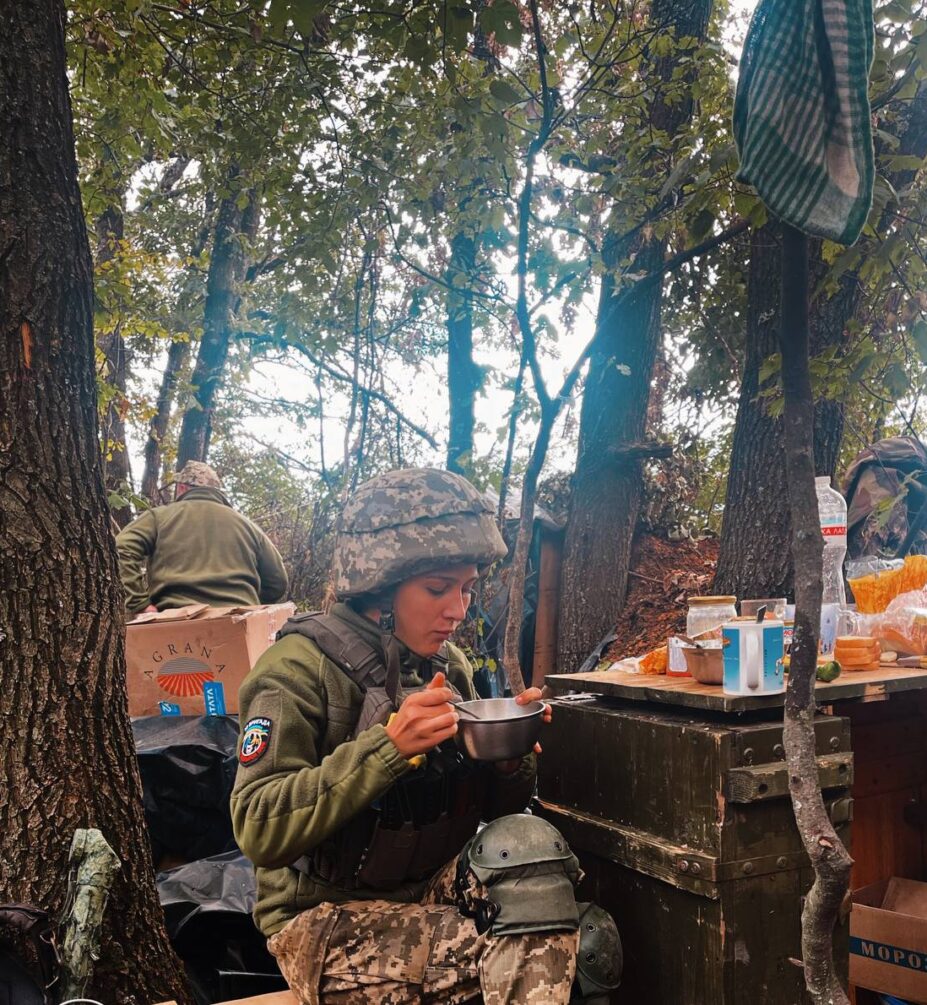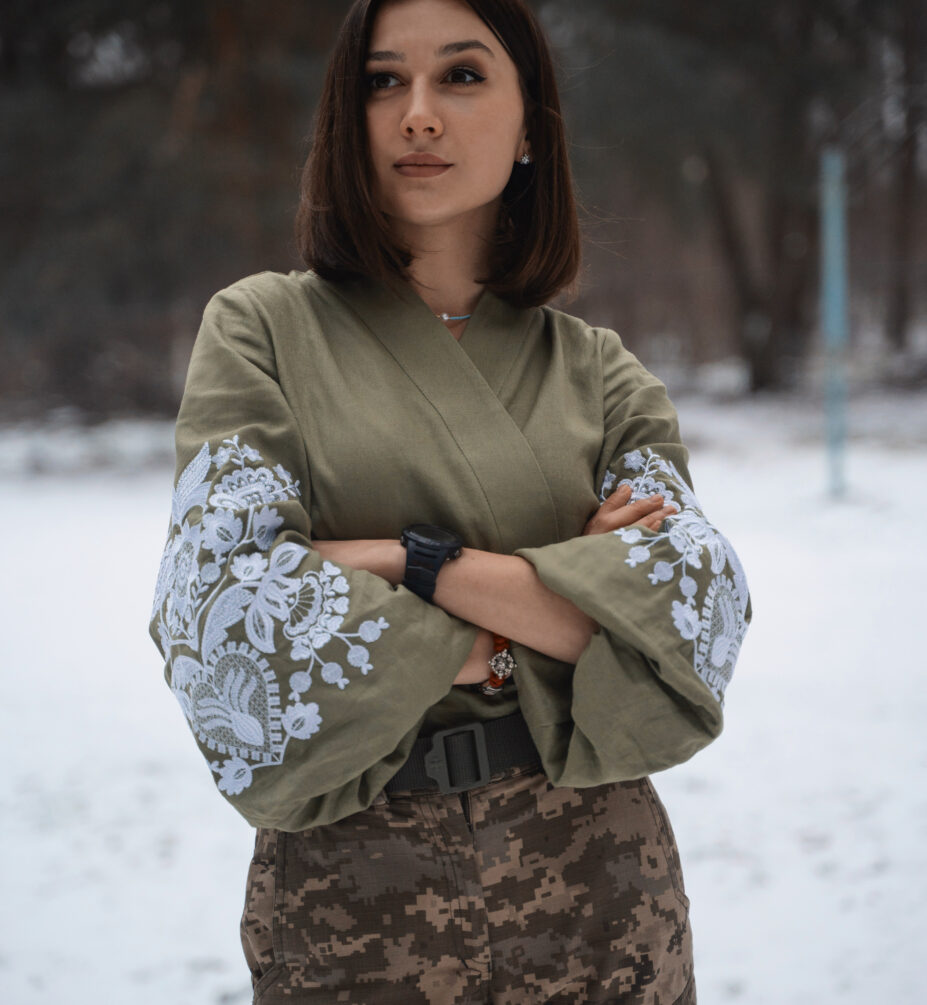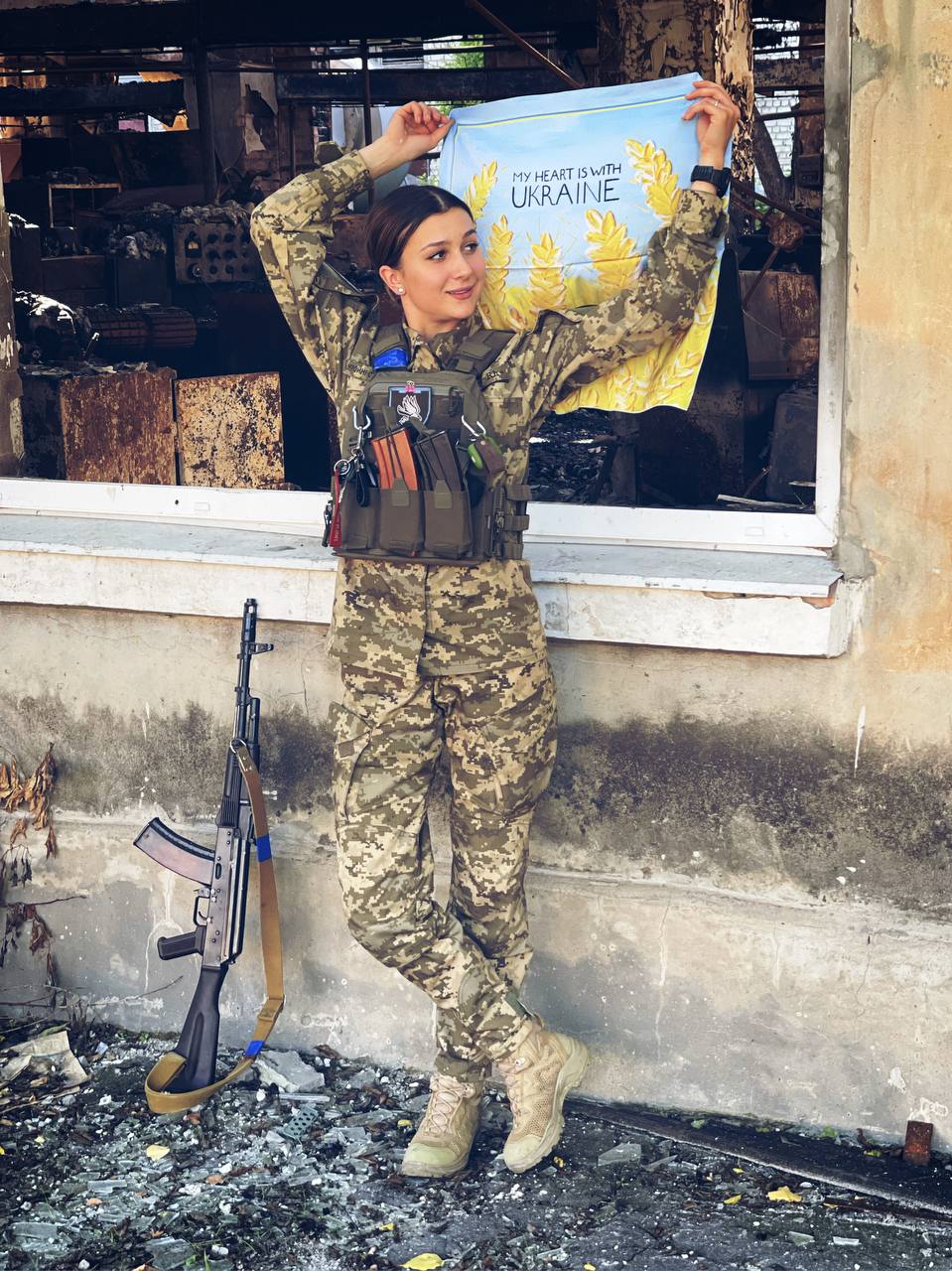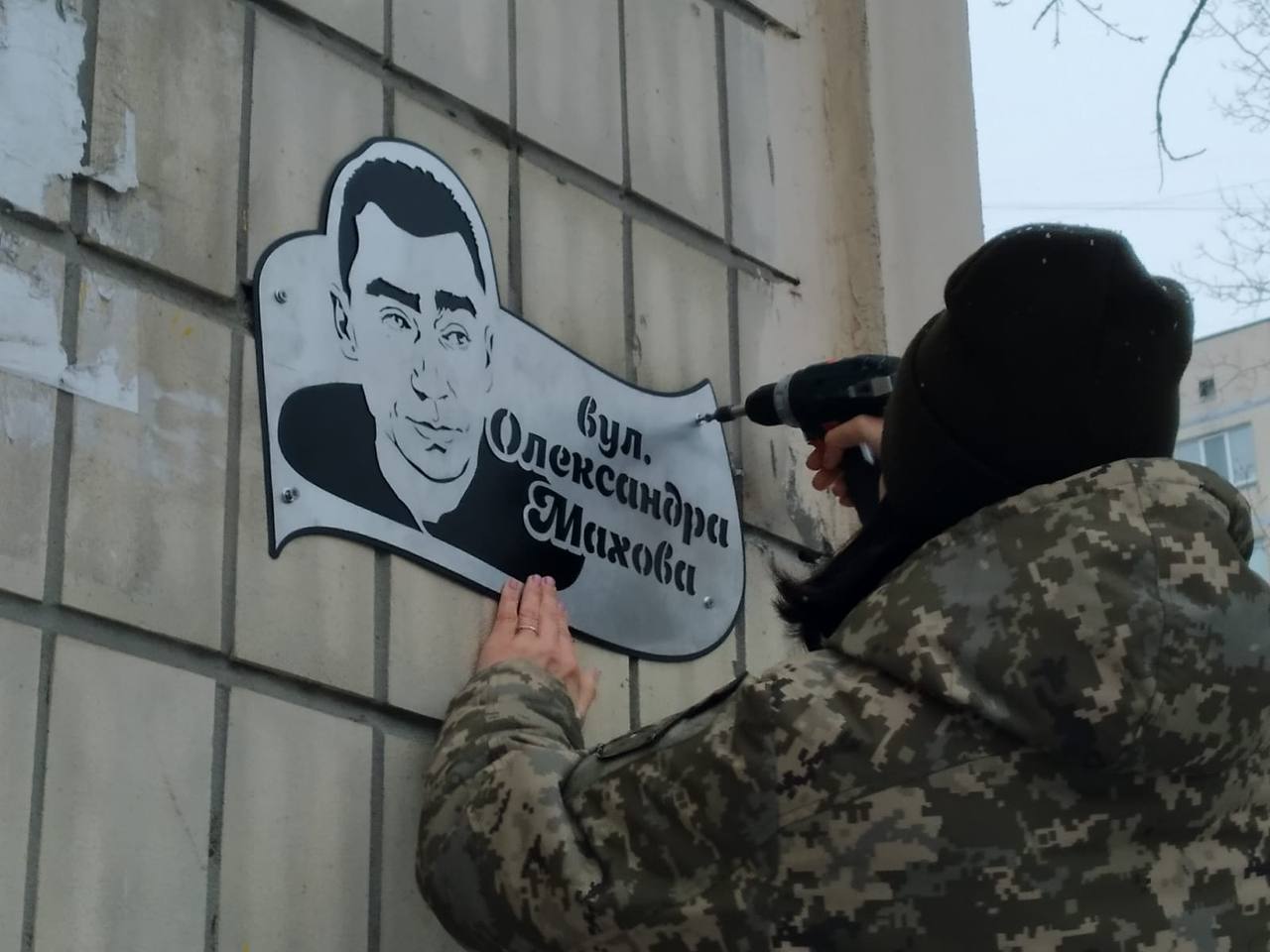“It was a friend who told me that Oleksandr died,” Anastasiya said, “I don’t remember too well what happened next. I just screamed and screamed.”
This is how Anastasiya Blyshchyk learned that her fiancé was killed in action. It was May 4, 2022.
“For three days, I was in denial, hoping that it was a lie,” Anastasiya recalled, “Then, I got a text from a military medic from Oleksandr’s unit. The text said: ‘I am sorry I could not save him.’ It was the worst thing that could have happened to me.”
Anastasiya’s fiancé, Oleksandr Makhov, volunteered to serve in the Ukrainian army on Feb. 24, 2022, the first day of Russia’s full-scale invasion. He was already an experienced soldier: He had served back in 2015 during the war in Donbas.
Both Anastasiya and Oleksandr worked as journalists. They met in the office of their TV station and fell in love. Anastasiya was the one who accompanied Oleksandr to the conscription office on Feb. 24, 2022.
After her fiancé’s death, the woman surrounded herself with family and work. For a few months, she tried to navigate her loss by overworking herself until in July 2022, she went to the conscription office herself — and joined the Ukrainian army.
She now serves near the Belarusian border.
“I did not come to the frontline to die,” Anastasiya said, “There is war in my country. We cannot win if we all sit and wait for others to protect us. As we speak, someone is getting a phone call that their loved ones have been killed in action while protecting their country heroically. This is hell.”
At War
“I remember the first day of the full-scale war,” Anastasiya recalled, “I was in Kyiv, and I fell asleep at 3 am. I had some bad feelings. I expected that the full-scale invasion would happen, but I, like most people, didn’t know that we would be bombed right away.”
“Then, in that kitchen where we spent our evenings, chatting about our days and future plans, he hugged me tight, and he said: ‘Forgive me for everything. I love you.'”
Back in February 2022, Anastasiya was working as a journalist at a national TV station. Her fiancé, Oleksandr, was her colleague, and on Feb. 24, 2022, he was in Donbas, a region in Eastern Ukraine, part of which has been under Russian occupation since 2014. He was there to report, but he also knew the area well. Oleksandr served in the East with the Ukrainian army since 2015 when he volunteered to defend his native land. Originally from Donbas himself, Oleksandr’s hometown has been under occupation since 2014.
“Oleksandr called me early on Feb. 24,” Anastasiya continued, “He told me: ‘Anastasiya, Putin announced a full-scale invasion.’ I started calling all my family. My parents were in Kherson region at that time, which is 50 miles from Crimea. My mom thought that I was just very sleepy and didn’t know what I was saying. But after she hung up, she heard the explosions and the movement of Russian tanks. She heard missiles above her head which were flying to destroy Ukrainian cities.”
Kherson region, which links the annexed Crimean peninsula with mainland Ukraine, was one of the first Ukrainian territories to be occupied in 2022.
“I later called my sister in Zaporizhia, and they also heard the missiles,” Anastasiya recalled.
At the time, she was recovering from the coronavirus, so she had been in isolation for a week. The woman left her apartment to get some food and cash. Oleksandr asked her to host some evacuees from the Bakhmut area, so she prepared for their arrival. Then she went to work, carrying her emergency backpack. She was sent to cover any news coming out of the President’s Office.
“We heard some reassurances from them, and then, I asked: How can everything be ok if there are Russian tanks in my native Kherson region?”
A few hours later, Oleksandr returned to Kyiv.
“It felt so normal and cozy with him,” Anastasiya remembered, “He picked me up from work, he showered, and we ate in our small cozy kitchen. I was checking the news all the time. Oleksandr told me: ‘Put away your phone, please, I want to talk to you because I am going to go to the conscription office.’ I said: ‘Wait, you’ve been on the road all day. Why don’t you sleep at home, and tomorrow morning, we will both go to the conscription office.’ And he answered: ‘I won’t be able to sleep because good people are dying there. I have to be there.’ Then, in that kitchen where we spent our evenings, chatting about our days and future plans, he hugged me tight, and he said: ‘Forgive me for everything. I love you.'”
Oleksandr didn’t take any of the food Anastasiya tried to put in his backpack. He said: “We’ve got food in the army, it is not 2014.” Anastasiya still managed to slip a chocolate bar into his pocket. Then, the couple walked to the conscription office. The public transport didn’t work, and all the taxis that passed were full.
“Feb. 24 was very warm,” Anastasiya said, “Oleksandr took off his jacket saying he regretted taking all his warm clothes. Nobody predicted that March would be so cold and snowy, and that the chocolate bar I gave him would be his only food for two days.”
Oleksandr entered the conscription office, and Anastasiya waited outside and watched groups of Ukrainian volunteers being led to the buses. They were all yelling: “Glory to Ukraine. Glory to heroes. Putin is a f***er.”
“I watched how people were hugging and kissing each other as they were sending their loved ones to war,” Anastasiya remembered, “Then, Oleksandr got out. He told me: ‘Remember: 95th assault brigade.’ This is where he was assigned to. I asked him: ‘So are you going to leave right now?’ He said: ‘No, I will stay with you for a bit.’ He held me really tight. I wanted to say something to him, but he said: ‘No, wait’ and held me tighter. And then, he asked me something very surprising. He said: ‘Will you wait for me?’ I said: ‘Of course, I will wait for you.’ He repeated that he loved me and asked for forgiveness again. And then, Oleksandr left.”
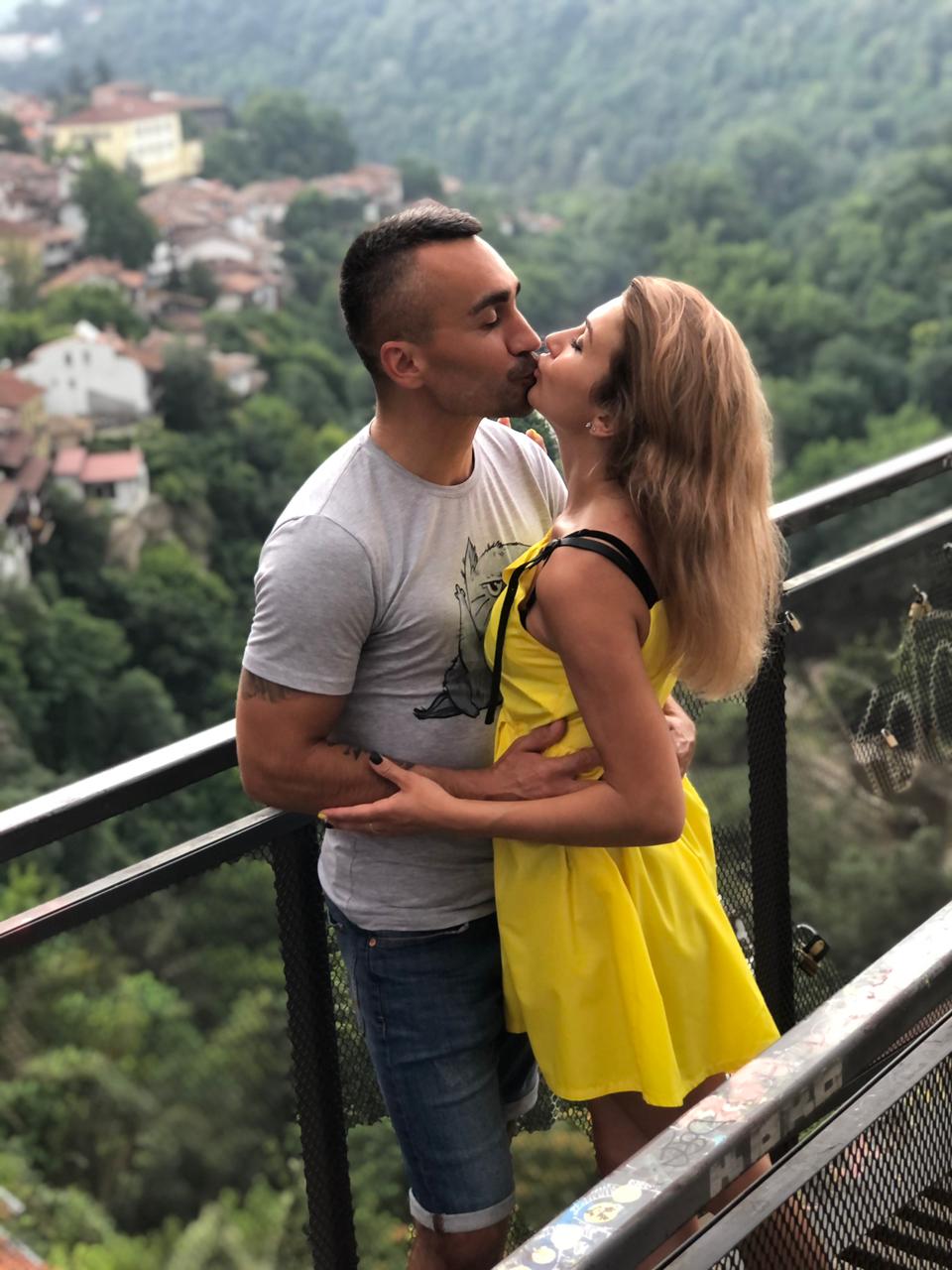
Anastasiya went home alone. She stayed with friends who lived nearby because she did not want to be by herself in the apartment. On that night, there were big explosions just outside Kyiv, but nonetheless, she somehow managed to sleep.
“Emotionally, I was drained,” she said, “My parents were in the Kherson region under Russian occupation, and Oleksandr went to war.”
Loss
Anastasiya became a news editor after Oleksandr’s deployment. She wanted to keep a regular schedule so she would have free time to track down ammunition to send to her fiancé and support any other way she could. Oleksandr convinced Anastasiya that the Ukrainian army had everything, but nobody knew then how many people had signed up. Before the full-scale invasion, the Ukrainian army was around 250,000 people. Now, it is about 700,000. She spent the spring months getting updates from Oleksandr, working, and volunteering.
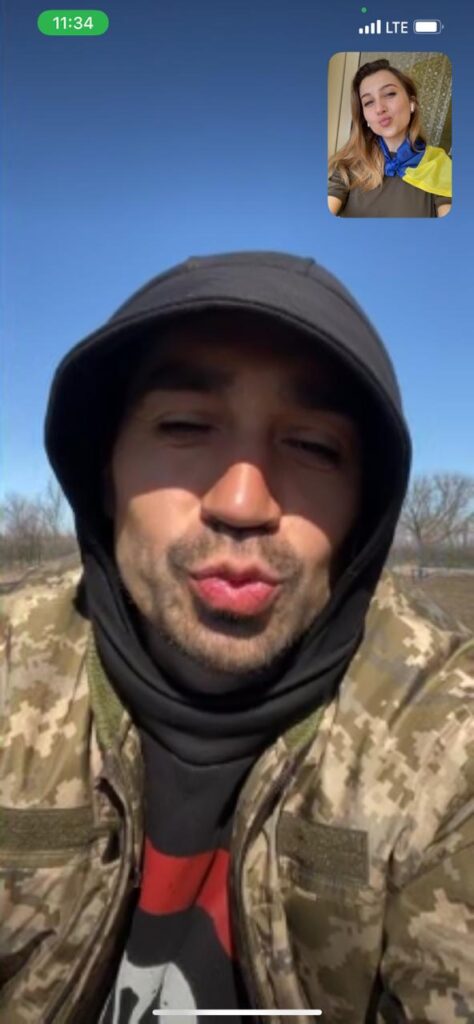
Then, on May 4, 2022, Anastasiya received that fateful call: her fiancé was killed in battle.










